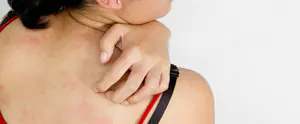
Itching of the skin of the body can occur as a result of a number of reasons. These could be insect bites, allergic reactions, sun tanning, any infections and even pregnancy. It is important to consult a doctor if the itching does not go away within a few weeks. If the itching is not severe and no other symptoms are observed, then you can use simple remedies to eliminate itching of the body skin: causes and home remedies, as a rule, can always be found.
Causes of itching
Nowadays, there are many signs that may portend a serious illness. One of these signs is a situation where the skin on the body itches. Skin can itch for various reasons. Most often these are the following:
- Detergents. The fact is that many people have allergic reactions to various detergents and powders, so for them, clothes should be washed with regular or neutral soap. Even if a person is not allergic to these products, but the clothes were not thoroughly rinsed after washing, chemicals remain in them, which are potential allergens and can irritate the skin.
- Dryness. When the skin is dry, it may itch frequently. Dryness can occur due to a dry climate, the use of certain soaps and medications, or a person's lack of fluid intake throughout the day. In this case, you should use a suitable soap, and also use an anti-itchy skin cream several times a day.
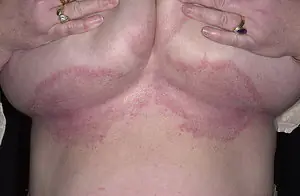
Tan. If a person has just returned from a summer holiday or lives in an area with a lot of sunny days a year, this increases the likelihood that the skin will itch as its regeneration and renewal lead to the exfoliation of dead plates.- Stress. It may be the reason why your skin is constantly itching. The peculiarity of this itching is the possibility of its occurrence in any part of the body. For example, if the front of your neck itches, the cause may be severe stress. The itching is not superficial, but is felt under the skin.
- Eczema is an inflammatory and chronic skin reaction that manifests itself in the form of pimples or rashes. It can appear both due to hereditary factors and external causes. You can relieve the itching of eczema by using antihistamines.
- Fungus. It most often affects the skin of the body in the summer months, as it develops quickly in damp places. The fungus can appear on the arms, legs, armpits and back and appears as white or red spots that may be itchy. If the back of your head and neck itches, a fungus may also be the cause. In this case, you need to check for dandruff and consult a dermatologist.
- Pregnancy. Itching can be a side effect during pregnancy. In this case, the skin itches on the stomach, chest, shoulders, elbows and buttocks.
Effective Home Remedies
Folk remedies for the treatment of irritated and inflamed skin combine the effectiveness of their action and the absence of side symptoms that may occur when taking medications for itchy body skin.
Cold bath, shower and compress
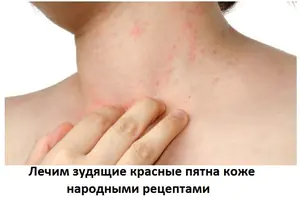
Until now, scientists have not established the exact mechanism that leads to itching, but cold water can be effectively used to relieve it. Therefore, you just need to take a cold bath or shower. You can also direct a stream of cold water to areas of the body that itch.
To cure itching faster, while taking a bath, you can add some vegetable oils to the water, which soften the skin, relieve irritation and relieve and remove itching. These oils include the following:
- Navel - has relaxing and anti-inflammatory properties;
- Frankincense - can relieve skin inflammation;
- Calendula tincture - helps in relieving itching and moisturizing the skin.
In turn, some oils irritate the skin, so their use should be avoided: bay, cloves, cinnamon, lemon, oregano, thyme and marigold.
You can get rid of itching by applying a cold compress. To do this, moisten a towel with cold water and place it on the place where the itching is most pronounced. This compress moisturizes inflamed skin and removes dead cells from it.
In addition to cold water, you can use ice cubes or some frozen product, which should be wrapped in a towel and placed on the affected area of the skin for no more than 10-20 minutes. Hot compresses and water can only increase inflammation and redness of the skin.
Baking soda and oatmeal
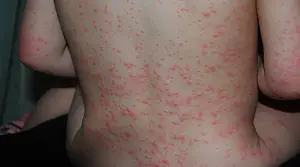
Sodium bicarbonate or baking soda solution is a good home remedy for any type of itching, but is most effective if the condition is caused by bee and other insect stings. It is necessary to dissolve a spoonful of baking soda in a bowl of cold water and immerse the affected area for 30 minutes. Usually the symptoms can be eliminated immediately.
Oats are a plant that contains many antioxidants that soften the skin and relieve irritation. It is most effective to use fresh oats that have not previously been subjected to any processing and prepare oatmeal from it using a regular coffee grinder. Then you should pour a bath of cold or slightly warm water and dissolve two tablespoons of prepared oatmeal in it. Taking such a bath for half an hour daily can effectively combat itching.
Another way to use oatmeal is to make a thick paste from it by adding a small amount of water and applying this paste to the inflamed areas of the skin for 20-30 minutes.
Aloe vera and fresh mint
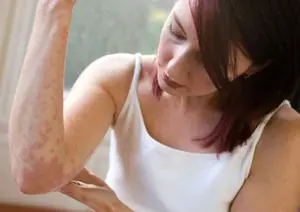
Aloe vera contains substances with antibactericidal and anti-inflammatory properties. In addition, the plant contains large amounts of vitamin E, which is useful against burns and skin inflammation. To soothe the itching, it is better to use a fresh plant. If you are growing aloe vera at home, you should cut off a leaf and squeeze the juice onto the itchy area. You can buy aloe vera gel at any pharmacy. If the skin is red and very inflamed, or there is an open wound, it is not recommended to use the gel of this plant.
Studies have found that taking a bath with mint leaves helps relieve itchy skin, as mint contains anti-inflammatory and anesthetic substances. You can also make a mint compress. To do this, soak the leaves of the plant in hot water, then cool the water, soak a towel in it and place it on the itchy skin. Peppermint oil can also be applied directly to the affected areas of the skin.
Lifestyle change
Leading a healthy lifestyle and following basic rules will help reduce the risk of body skin itching to a minimum. The following simple rules must be followed:
- To effectively combat itching, it is not recommended to scratch the skin, as scratching will irritate it even more. In addition, substances such as histamine and other cytokines are released, and the brain also releases chemicals that only intensify the itch itself and its sensation. If the skin becomes damaged by scratching this way, it can become infected and inflamed. It is recommended to keep your nails short and it is better to wear gloves at night.
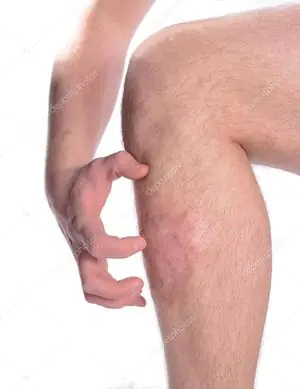
It is recommended to wear loose clothing made from natural fibers. Cotton is not only hypoallergenic, but also allows the skin to breathe, which promotes the effective evaporation of sweat from its surface. In addition, cotton is very easy to wash, dry and store compared to other types of fabrics. Other fabrics made from natural fibers that are gentle on the skin include linen and silk. Care should be taken with leather clothing as it is quite rough.- An important condition for eliminating itching is to avoid using perfumes, lotions, shampoos, soaps and any other chemical products with strong odors. For many people they cause inflammation of the skin. Glycerin is useful and safe: it is a colorless and odorless gel that is used to moisturize and wash the skin. You need to rinse off the soap thoroughly and then use a moisturizer.
- Avoid using harsh detergents and use non-scented detergents instead. Some companies produce a product specifically for sensitive skin. After washing, it is recommended that you rinse your clothes thoroughly to remove any remaining chemicals.
- It is recommended to use a humidifier to help maintain the required humidity in the room. If you don’t have such a device, you can easily make it yourself. To do this, simply place vessels with water in different places in the room, making sure that they are inaccessible to children and pets. During the cold season, vessels should be placed near heat sources, and in hot months - near windows. This way, the water will evaporate more easily and humidify the air.
- It is important to be able to relax and relieve stress. The most effective exercises, yoga and meditation practice. Some natural drinks also help relieve stress, such as tinctures of orange leaves, lemon balm or basil. Regular listening to good music can also give positive results.
Balanced diet
It is necessary to monitor your diet, which should always contain vitamins and minerals. Most dietary supplements can cause side effects, especially if taken while taking any medications. Therefore, before adding anything new to your diet, you should consult your doctor. To keep your body healthy, you need to include the following components in your diet:
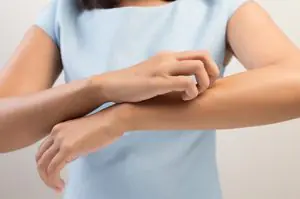
Polyphenols (flavonoids). Flavonoids such as quercetin and rutin are natural antihistamines that help protect cells from damage to their DNA. Typical daily doses of quercetin and rutin are 250−500 mg and 500−1000 mg.- Vitamin A. It is present in large quantities in liver, spinach, fish, milk, eggs and carrots.
- Vitamin B. There are different complexes of vitamins in this group, however, they can also be obtained from regular food. Legumes, fish, poultry and baked goods are rich in B vitamins.
- Omega 3 fatty acids. These acids keep human skin hydrated and help fight various inflammations. Green leaves, nuts, mackerel and tuna fish oils are excellent sources of these acids.
If after using various types of creams and soaps the itching cannot be relieved, it is recommended to consult a doctor, as the skin may itch due to more serious diseases such as psoriasis or diabetes.
Itching is usually accompanied by an unpleasant burning sensation, tingling and redness of the skin. Very often, this symptom appears as a result of skin interaction with chemicals, poisonous insects, plants or other irritants. Also, itching on the body may appear due to allergens that enter the body through the oral cavity or injections. If such a disease is detected, you should immediately seek help from a dermatologist. Irritation and redness of the skin may indicate that a person has a serious illness.
In this article we will talk in detail about the causes and methods of treating itchy skin.
Main types of itching
Why does the body itch? This process occurs due to the fact that a person touches and begins to massage the affected area. After this, blood circulation processes in this area of the skin are enhanced, and toxins are removed from the lymph flow. The desire to scratch the skin temporarily disappears, but over time the itching appears again.
Doctors have divided body skin itching into two types:
- Localized. Severe burning occurs in certain areas of the skin (for example, in the perineum, anus, legs, arms, etc.).
- Generalized. An unpleasant symptom covers the entire body. In this case, there may be no redness of the skin.
Both types of itching can be either temporary or permanent. If a person experiences a strong burning sensation for a long time, this can trigger other symptoms (sleep disturbance, lack of appetite, uncontrolled scratching of the skin until blood appears).
Doctors have found that itching on the skin intensifies in the evening. This occurs due to the fact that the body temperature becomes higher and the blood vessels dilate. In turn, this leads to increased blood circulation.
Common causes of itchy body skin
Burning and tingling of the skin can occur due to various diseases or upon contact with irritants. It is very difficult to independently identify the cause of such an illness. So, let's look at what it could be.
Itching occurs due to various diseases:
- Biliary dyskinesia or liver disease. Due to disruption of these organs, bilirubin and cholic acids are deposited in the epidermis.
- Diabetes. Severe body itching occurs due to elevated blood glucose levels.
- Xerosis – increased dryness of the skin. The causes of the disease are the use of harmful cosmetic products or hormonal imbalance.
- Hives. In the presence of this disease, small itchy formations appear on the human body.
- Psoriasis. Localized type of itching. Most often it appears in the elbows, armpits and neck.
- Scabies is a contagious skin disease caused by the scabies mite. Itching of the skin of the body is observed due to the fact that an immunoallergic reaction of the human body to the waste products of the parasite occurs.
- Contact dermatitis. A distinctive feature of this disease is that a rash with clear boundaries appears on the skin, on top of which blisters can form.
- Atopic dermatitis. Most often, this inflammatory skin lesion develops in children. Signs of this reaction: peeling, redness and dryness of the cheeks, long-lasting diaper rash in the folds of the skin (especially in the perineum and buttocks).
- Neurodermatitis. This disease occurs as a result of a malfunction of the human immune and nervous system.
In most cases, the body itches due to an allergic reaction. Any type of allergy has a negative effect on the skin. This happens due to the production of histamine in the body. This substance disrupts the integrity of the structure of the epidermis.
Also, in some cases, the body itches due to human contact with external irritants. Irritation may occur due to exposure to the following allergens:
- chemicals (including cosmetics);
- contact with poisonous plants;
- insect bites;
- some food products;
- side effect from taking medications.
It is extremely difficult to independently determine why your skin itches. Therefore, if redness, burning or tingling occurs, you should immediately seek help from a qualified specialist.
Diagnostics
Before starting therapy, it is necessary to identify the cause of the unpleasant symptom. To do this, you need to contact a dermatologist. This doctor examines and treats skin diseases. If you are sure that your skin may be itching due to an allergic reaction, then you should consult an allergist.
Diagnosis of patients is carried out according to the following plan:
- Examination of the skin.
- Collect information about the patient’s symptoms and well-being.
- Laboratory research.
In order to make a correct diagnosis, the doctor prescribes an individual examination for the patient. The patient must donate blood (for biochemical, general and detailed analysis), feces and urine. He will also need to undergo x-rays, endoscopy and ultrasound examinations. In some cases, the doctor may prescribe a tumor marker test for the patient.
These research methods help to identify disturbances in the functioning of organs, detect inflammatory processes, allergic reactions and allow one to assess the condition of the body.
Treatment methods
If burning, tingling and redness of the skin occurs, special attention should be paid to personal hygiene. If you have itchy skin all over your body, it is recommended to wipe the epidermis daily with a vinegar solution. If there is localized itching (in the anus or perineum), these areas should be thoroughly washed twice a day (morning and evening).
Drug treatment
Ointments are used to eliminate unpleasant symptoms. It is worth remembering that these medications are temporary and will not help get rid of skin irritation forever.
The most effective medications for external use:
- Sinaflan. The ointment is applied to the affected area no more than four times a day. With prolonged use of the product, pigmentation disorders, dryness, hair loss, etc. may appear on the skin. Before using the ointment, read the instructions.
- Levomekol. An effective ointment for itchy skin, has an anti-inflammatory effect. Contraindications: hypersensitivity, presence of trophic ulcers or severe burns. Side effects when using the drug are extremely rare.
- Fenistil gel. The product is applied to the affected areas several times a day. Sometimes the gel can cause dry skin. If more serious side effects occur, you should immediately stop using the product.
In most cases, skin irritation occurs due to elevated histamine levels. To eliminate the symptoms of itching, doctors recommend using antihistamines.
- Suprastin. The dosage of the drug is prescribed individually (depending on the age and weight of the patient). Side effects are rare and disappear quickly. The drug should not be used in children under three years of age, during pregnancy, lactation and with lactose intolerance.
- Erius. Common side effects when using tablets: dry mouth, weakness, headache, anaphylactic shock. The drug is contraindicated in nursing and pregnant women. It should also not be used for renal failure.
- Claritin. The drug acts on the cause of itching of the skin of the body. You can completely get rid of irritation in just one week. Dosage – no more than one tablet (10 mg) per day.
- Tavegil. Take the tablets before meals with water. Children from 6 to 12 years old are recommended to take 1/2 tablet per day. Dosage for adults and children over 12 years of age – 1 mg twice a day (morning and evening).
Ointments based on glucocorticosteroids:
- Triderm. This product has an anti-inflammatory effect and quickly eliminates redness and irritation of the skin. Treatment lasts no more than one month. Side effects when using the cream are rare. Steroid ointment has a number of contraindications; read the instructions before using it.
- Fluorocort. The medicinal ointment should not be used by pregnant and lactating women and small children. Also, this remedy is not recommended for use against fungus, syphilis and skin tuberculosis. The cream must be applied to the affected area 2-3 times a day. If your whole body itches after using the medicine, you should consult a doctor.
- Lorinden. With long-term use of steroid ointment, some side effects may appear: dryness and short-term redness of the skin, impaired pigmentation of the epidermis. The product is applied in a thin layer to the skin no more than three times a day. The course of treatment is 2 weeks.
It is strictly forbidden to use the above medications without a doctor’s recommendation. Self-medication can worsen your health and lead to various complications.
Traditional medicine
What to do if your body itches, but you don’t have the opportunity to visit a dermatologist? You can eliminate burning and redness using traditional medicine. It is worth remembering that home remedies only provide temporary relief from itching.
- First aid for inflammation is a cream with chamomile extract or glycerin. The cream must be applied 4 times a day.
- If the itching appears as a result of an insect bite, wipe the affected area of the body with alcohol.
- Soda lotion. Mix a teaspoon of baking soda with water. If desired, you can add chamomile tincture or baby cream to the paste. Apply the resulting product to the skin, and after a while, rinse it with water.
- Mix tea tree oil and menthol in equal proportions. This product will pleasantly cool the skin and eliminate redness and irritation. Treat itchy body skin until all symptoms completely disappear. Repeat the procedure several times a day.
- Add chamomile tincture, baking soda and salt to your bath. The duration of the procedure is 15 minutes.
- Pumpkin seeds. In order to alleviate unpleasant symptoms, it is recommended to eat 2-3 tablespoons of seeds in the morning (on an empty stomach). You can also add them to various dishes (sauces, salads, drinks).
- After showering, apply a small amount of olive oil to your body.
Preventive measures
In order to prevent the development of itching of the skin of the entire body, it is recommended to carry out the following preventive actions:
- Maintain personal hygiene, but don’t get too carried away. Washing your body and head too often leads to disruption of sebum secretion. It is advisable to shower no more than once a day. Also try to use natural detergents and hypoallergenic soaps.
- Install a humidifier at home. It will keep your skin healthy.
- Avoid stress and emotional turmoil. To calm down, drink herbal tea every evening.
- Try not to wear clothes made from synthetic fabrics, as they can cause irritation.
You also need to watch your diet. To prevent the development of itching throughout the body, it is necessary to exclude spicy, smoked, flour and fatty foods from the diet. Avoid foods that may cause allergies (alcohol, chocolate, oranges, grapefruits, nuts, etc.). Vegetables, lean meat, cereals and dairy products should form the basis of your diet.
Video on the topic
Every person's skin may itch from time to time, and sometimes this is not taken seriously. However, this phenomenon cannot be ignored, because itching can cause a serious illness. Every person who cares about their health needs to know why the skin of the body sometimes itches.
What is itching
This is the name for the feeling in which the skin is irritated and you want to scratch it. May be accompanied by tingling and burning. Itching is not a separate ailment. This is just a symptom, one of a complex characteristic of some disease. Regardless of what pathology it is caused by, it occurs due to irritation of the nerve endings existing in the upper and middle layers of the epidermis.
Types of itching
There is a classification according to the mechanism of origin. According to it, there are several types of itching:
- Pruritoceptive. It begins on inflamed, dry or damaged skin.
- Psychogenic. There are many root causes for its occurrence, but the most common is constant emotional depression.
- Neuropathic. Occurs when there is a disturbance in the functioning of the nervous system.
- Neurogenic. Caused by pathologies that do not affect the nervous system.
Depending on the area of localization, the following types of itching are distinguished:
- general(generalized);
- local.
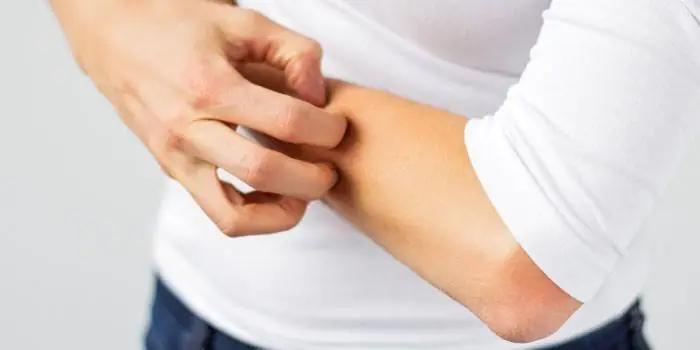
Generalized itching
This is the name given to a condition in which the entire body itches. The causes of generalized itching can be both pathological and natural. The skin on the body may itch due to prolonged exposure to the sun or rising to high altitudes, as well as the aging process of the body. As a rule, the feeling of discomfort worsens in the evening and reaches its peak at night. There are cases when the itching is generalized, but not pronounced. It manifests itself occasionally as a slight burning sensation.
Localized itching
In this case, a certain area of the skin itches and irritates. As a rule, localized itching is pathological. The most common places of damage: scalp, genitals, anal area. In addition, there are a huge number of cases when people’s ears, eyelids, nose, face, fingers, and limbs itch. It is not the irritation itself that needs to be treated, but the diseases that caused it.
Causes of itchy body skin
To get rid of discomfort, it is necessary to find out why it arose. There are many reasons for itchy body skin. It is caused by skin diseases, problems with internal organs, or even a certain emotional state. Regardless of why the skin of the body itches, this condition must be eliminated. It is worth taking a closer look at the most common factors that provoke it.
Causes of itching all over the body without rashes
A very common occurrence. The following causes of itching all over the body without rashes may be noted:
- chronic renal failure;
- old age (as we get older, the skin becomes drier, so itching may occur);
- development of liver diseases;
- pregnancy;
- mental disorders;
- pancreatic head cancer;
- blood diseases;
- blocking of the duodenal opening by a neoplasm;
- infectious invasions;
- diabetes mellitus and thyroid disorders (very common causes of itchy body skin without a rash);
- stress;
- a side effect of taking a drug.
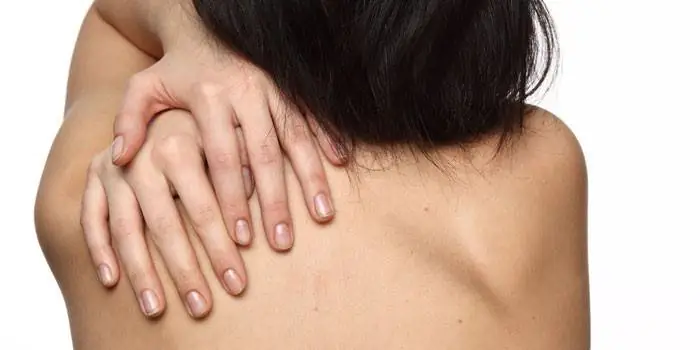
Causes of severe itching all over the body
Sometimes the irritation is simply unbearable. The causes of severe itching all over the body are:
- allergies (usually atopic dermatitis, urticaria);
- stress (the degree of irritation varies from mild and unnoticeable to very strong, causing uncontrolled scratching of the skin);
- seasonal weakening of the body (especially in people with vegetative-vascular dystonia);
- lymphogranulomatosis;
- kidney disease;
- Hodgkin's lymphoma;
- multiple sclerosis;
- erythremia.
Rash and itching on the body in an adult
The most common, but far from the only cause of such symptoms is allergies. In general, the factors that provoke rash and itching on the body in an adult are divided into infectious and non-infectious. Each group requires detailed consideration. Infectious causes of skin itching with rash:
- Syphilis. In the second stage of the disease, the body becomes covered with spots, and in the third - a small rash similar to a nettle lesion. The route of transmission is sexual.
- Lichen. Absolutely all types of rashes are characteristic of such skin lesions. Always accompanied by itching and irritation.
- Herpes. It most often appears on the face, but can also be located in other areas. It starts with a spot of redness that you want to scratch unbearably, then in its place small bubbles with water inside appear, then crusts.
- Rubrophytia. A fungus that affects the feet.
- Pemphigus.
Non-infectious reasons why the skin on the body itches and a rash occurs:
- lupus erythematosus or systemic lupus;
- seborrheic dermatitis (affects areas of the body where there are many sebaceous glands);
- hives;
- psoriasis (at first the rash does not itch, but later leads to severe discomfort);
- Diaper rash.
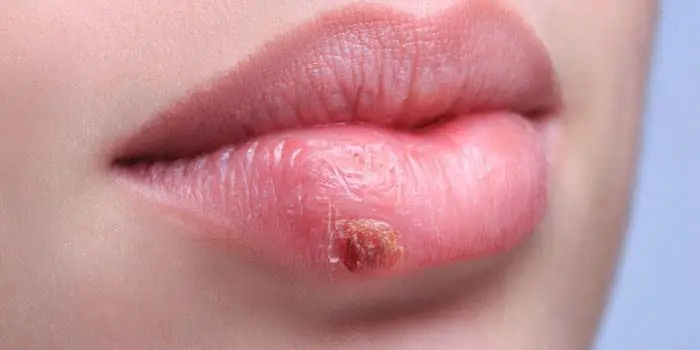
Subcutaneous itching
This phenomenon does not occur as often as others, but it causes a lot of inconvenience for both adults and children. Subcutaneous itching begins due to:
- allergic reactions;
- mental disorders;
- neurodermatitis (this disease is caused by stress);
- problems with the digestive system;
- fungi;
- parasitic infestations.
Causes of dry and itchy body skin
These two states are closely interrelated. The main causes of dry and itchy body skin are aging and dehydration. The cells gradually become less elastic than before. In addition, dry itchy skin occurs when:
- allergies;
- fungal infections;
- skin diseases;
- kidney and liver problems;
- infectious diseases;
- being in unfavorable climatic conditions (excessive cold or heat);
- use of inappropriate personal hygiene products and cosmetics;
- thyroid disease.
Rash on the back of an adult
This phenomenon, in most cases, occurs with allergies. The appearance of rashes on the back of an adult is typical for:
- hormonal imbalances (adolescence, pregnancy, lactation);
- dysbacteriosis;
- lack of personal hygiene (rare showering);
- problems with the urinary system;
- gynecological diseases;
- being in unfavorable climatic conditions;
- endocrine diseases;
- stress;
- insect bites;
- poor nutrition;
- excessive sweating.
What skin diseases cause itching on the back:
- hives;
- fungi;
- psoriasis;
- skin infections;
- scabies;
- seborrhea;
- neurodermatitis.
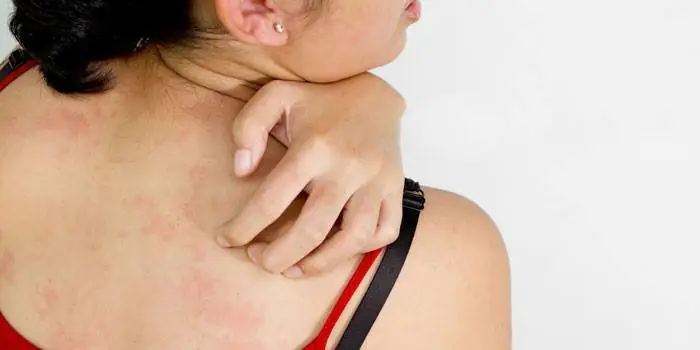
Psychogenic itching
Caused by stress, situations that provoke anxiety or emotional instability. As a rule, the appearance of psychogenic itching is typical for people over forty years of age. There are no skin changes. Patients may feel as if someone is crawling on their body. Sometimes they scratch the areas that bother them so much that wounds appear.
My whole body itches at night
Increased itching in the evening is typical for almost every person, be it a man or a woman. At night, the whole body itches because the blood vessels dilate and blood circulation increases. More heat enters the cells, which leads to increased exposure to stimuli. There is nocturnal itching of the skin of the body - the causes of which are exacerbations of the sensitivity of the nervous system caused by stress, neurasthenia, complications of any disease.
Rash on the sides of an adult
Possible reasons for this phenomenon:
- A rash on the sides of an adult occurs with certain types of herpes, especially herpes zoster.
- Scarlet fever.
- Problems with the liver or pancreas.
- Allergy.
Itching and peeling skin on the legs
Many people encounter this phenomenon. Itching and peeling of the skin on the legs can occur with:
- neurodermatitis;
- fungus;
- negative climate impacts;
- contact dermatitis;
- erythroderma;
- varicose veins;
- using low-quality skin care cosmetics;
- exfoliative dermatitis;
- diabetes mellitus;
- psoriasis;
- dermatosis;
- eczema;
- allergic reaction to foods, medications;
- thrombophlebitis;
- wearing low-quality and too tight shoes;
- dehydration.
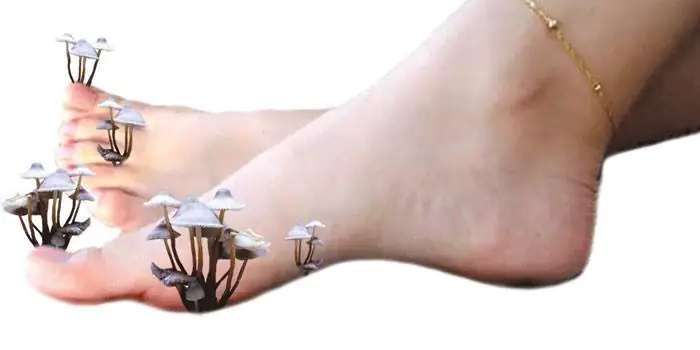
Itchy whole body and head
The causes of this phenomenon may be illnesses, but external factors cannot be ruled out. Diseases in which the whole body and head itches:
- neurodermatitis;
- scabies;
- hives;
- diabetes;
- xerosis.
The head and body may also itch for the following reasons:
- contact with external irritants (chemicals, pollen, synthetic clothing, etc.);
- increased sensitivity of the nervous system;
- excessive impressionability.
Rash on the hands of an adult
This symptom is characteristic of many diseases. A rash on the hands of an adult occurs when:
- allergic dermatitis (contact, atopic, toxicoderma);
- eczema;
- scabies;
- syphilis;
- erysipelas;
- intestinal yersiniosis;
- lichen;
- psoriasis;
- vasculitis.
Diagnosis of body skin itching
If you suddenly start itching, do not put off visiting a dermatologist. Diagnosis of body skin itching to identify a disease for which treatment should be prescribed consists of the following measures:
- initial examination of the patient (skin);
- survey (the patient must list his complaints and indicate additional symptoms);
- laboratory tests and non-invasive studies.
As a rule, the patient is prescribed an examination according to an individual program, which may include one or more of the following procedures:
- blood tests: general, biochemical, detailed, for sugar and thyroid hormones;
- X-ray;
- Ultrasound;
- stool tests: general and for the presence of worms;
- endoscopy (colonoscopy, gastroscopy, etc.);
- Analysis of urine.
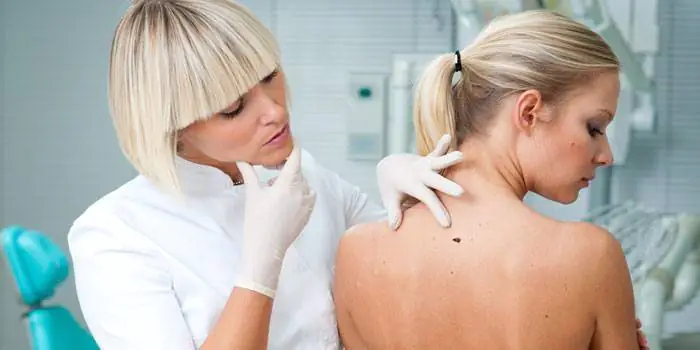
Treatment of itchy body skin
Therapy may be recommended, either medicinal or alternative. As a rule, treatment of body skin itching is carried out using the following medications:
- local antihistamines and anti-inflammatory (Bepanthena, Elokola, Fenistila, Mesoderm, Beloderm, Solcoseryl);
- antihistamines for internal use (Erius, Zyrtec, Tavegil, Loratidine, Diazolin, Cetrin);
- enterosorbents. In case of food allergies, doctors always prescribe the enterosorbent Enterosgel in a course to remove allergens. The drug is a gel soaked in water. It gently envelops the mucous membranes of the gastrointestinal tract, collects allergens from them and removes them from the body. An important advantage of Enterosgel is that allergens are firmly bound to the gel and are not released in the lower intestines. Enterosgel, like a porous sponge, absorbs mainly harmful substances without interacting with beneficial microflora and microelements, so it can be taken for more than 2 weeks.
- folk remedies (melissa tincture);
- antifungal(Fluconazole);
- ointments with glucocorticosteroids (Lokoid, Advantan).
Video
Reviews
Tatyana, 46 years old Itching of the skin of the body - the causes of which for me are always frustration and stress - appeared in my youth, and began to intensify with age. Various areas itch all the time: arms, face, stomach, legs. I try to take light sedatives, because special ointments do not help at all. I know that I need to see a doctor, but I keep putting it off.
Alexander, 36 years old The body began to itch very much a year ago, but the cause could only be determined now. It turned out that I have diabetes. The skin has become very dry, but it itches less when the sugar level approaches normal. Ointments with a cooling effect help relieve the unpleasant sensation. I tried others, but didn't see any results.
Irina, 31 years old Having become pregnant, I was faced with such a nuisance as itching of the skin of the body - the true causes of which could not be determined for a long time. It was a matter of hormonal changes in the body, and I suspected the worst: fungus, psoriasis, lichen. The stomach and legs itched the most. I got rid of discomfort by rubbing a glass of lemon balm tincture into my skin every day.



